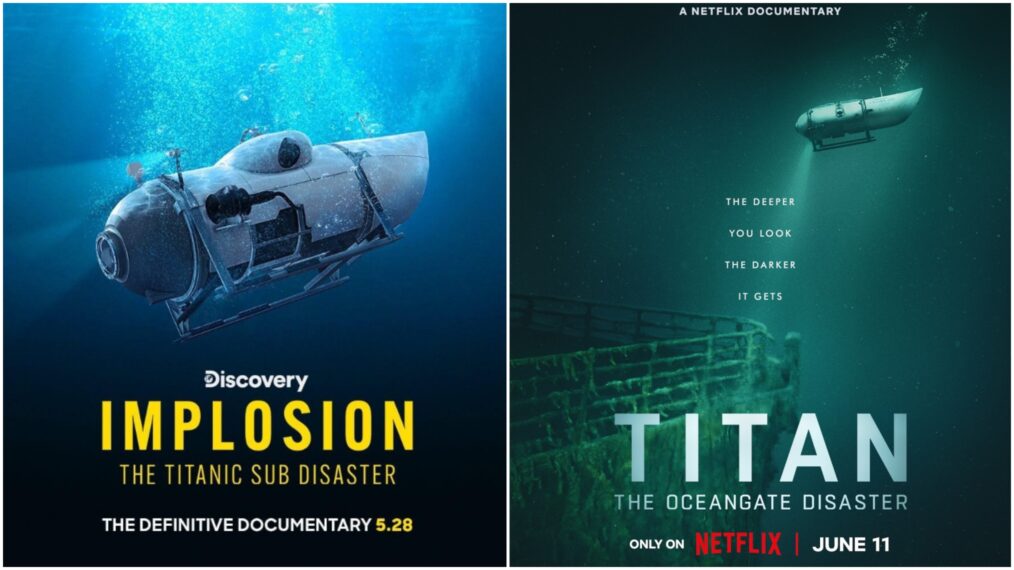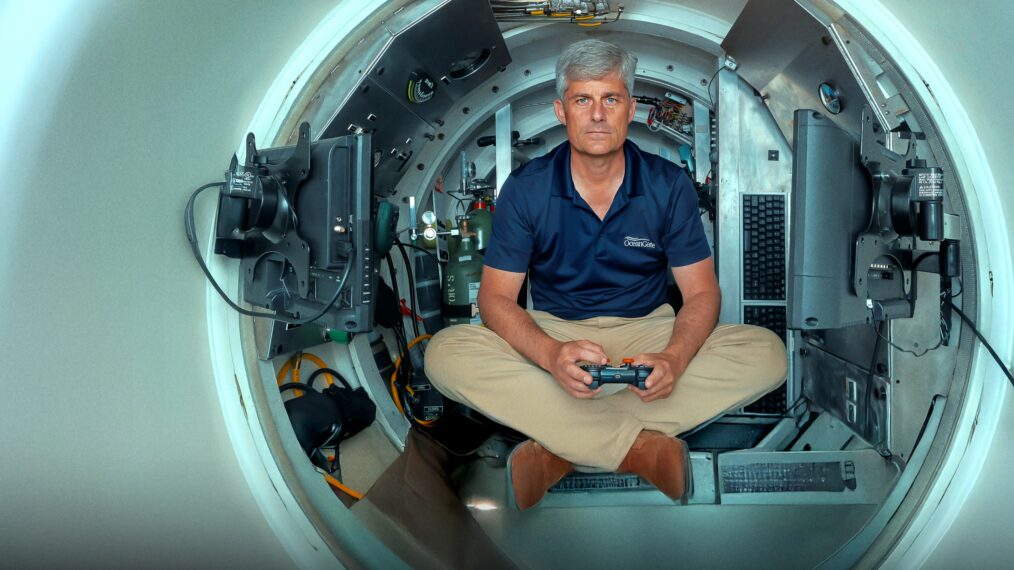Which Titan Disaster Documentary Should You Watch? Discovery & Netflix’s OceanGate Docs Compared

It’s another tale of dueling documentaries released in rapid succession. We’ve seen it before with prior headline-grabbing events like Fyre Festival, the Thailand cave kid rescues, and the Murdaugh murders, to name a few. This time, there are back-to-back new documentaries on the subject of the Titan submersible implosion disaster available to audiences.
Discovery’s Implosion: The Titanic Sub Disaster aired (and dropped on HBO Max) on May 28, and Netflix’s Titan: The OceanGate Submersible hit the streamer on June 11. Both documentaries take us inside the rooms where OceanGate CEO Stockton Rush made the fateful decisions that would lead to himself and four others — including a teenager — being instantly killed when the carbon fiber vessel they were riding in collapsed under the pressure of the ocean during their trip to visit the ruins of the Titanic.
So which of the two documentaries is the most worth watching? Here’s a look at what both of the features have to offer.
Implosion: The Titanic Sub Disaster (Discovery/Max)
Discovery’s documentary is unique for its offering of a somber testimonial from Christine Dawood, whose husband and son, Shahzada and Suleman, were among the perished passengers of the submersible. Her most chilling line? Arguably it’s, “Why is ego and arrogance more important than safety? The irony is not lost on me that Titanic sank for the exact same reason. History repeats itself.”
This one is also the documentary that features the now-viral footage of Rush’s wife reacting to a loud banging noise coming from the sub below that was, we now know, the sound of the vessel’s deadly demolishment.
Implosion is also significant for its deep dive (no pun intended) into the fallout from the title event, as the Coast Guard members that investigated the matter provide unfettered access to pieces of the wreckage they found at the bottom of the ocean and in the company’s safety records.
The documentary also gives fuller insight into the history of the experiment, with accounts of the many dives that preceded the last one from horrified former employees. It also features Expedition Unknown host Josh Gates host, who provides his account and footage of diving with Stockton Rush for an episode of the show and then being so freaked out by Rush’s hubris that he had to call the network up and cancel the segment for fear it would endorse OceanGate to his viewers.

Netflix
Titan: The OceanGate Submersible (Netflix)
Netflix’s documentary also boasts a very personal victim account from the daughter of Paul-Henri Nargeolet, who, the documentary reveals, lent his credibility as the foremost Titanic expert to the project and thus convinced several others to trust its fearless captain.
However, it’s the former OceanGate employees featured that provide the most unnerving accounts in this documentary — particularly that of David Lochridge, once the director of marine operations who became a whistleblower against the company out of extreme safety concerns and went broke in the process of trying to stop the Titan from reaching its final fate through an OSHA complaint. The audio evidence of his last meeting with Rush is stunning, as is another employee’s testimony that she was offered a promotion from accountant to pilot in the wake of Lochridge’s firing.
Others featured include CBS Sunday Morning‘s David Pogue recounting his experience on one of the Titan’s successful drops to the wreckage and YouTuber Jake “Scuba Jake” Koehler tearfully recalling how a burst of fog stopped his planned dive on Titan, which would’ve very likely been its last. We also learn here that in its earliest stages, OceanGate was working with Boeing engineers, who stressed the dangers of reaching depth with Titan’s design, and that Rush’s company went ahead with a hull design that’d proved to be a failure in scale tests.
The documentary also does very well to explain the problematic nature of the material Stockton Rush insisted on using for the vessel, carbon fiber, and how it continued to show increasing signs of distress dive after dive.
Verdict: Which documentary is most worth watching?
In this case, the answer is: Both. Rather than being competing documentaries with massive chunks of repetition and overlapping material, the films are quite complementary to one another and, together, paint a clearer picture of what happened with this disaster… and why.
In the end, the sheer recklessness of the Titan endeavor and the inevitability of its eventual collapse is well demonstrated by both of these documentaries. Stockton Rush is presented as a dangerous and delusional man who used the media, legal loopholes, and sheer intimidation to push his creation past the point of no return.
Other similarities: They each feature harrowing stories from the victims’ loved ones, gripping statements from those who worked for OceanGate and sounded the alarm, and disturbing tales from former passengers who’d dived with the Titan in the past.
They also both impress the fact that warning signs were flashing all over the Titan — and ignored by Stockton Rush specifically — for years with the carbon fiber cracking noises, how damaging Dive 80 was, and how much of a mistake it was for Rush to park the Titan outside in freezing weather all winter long before the last dive.
If you absolutely have to choose one to watch, the Netflix documentary is probably the one that best explores the inner workings of OceanGate from a personnel standpoint, showcasing how one man was responsible for the Titan’s fate.







